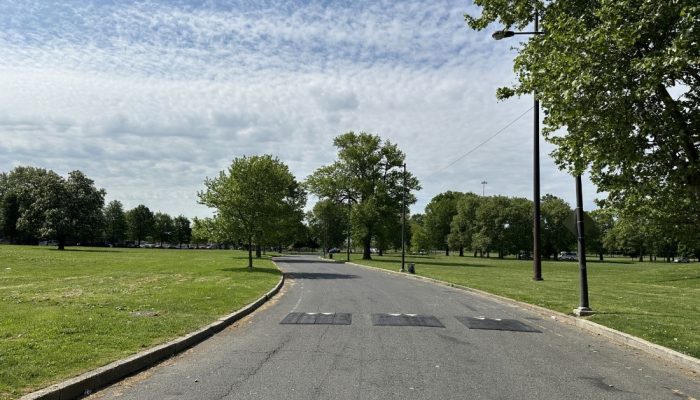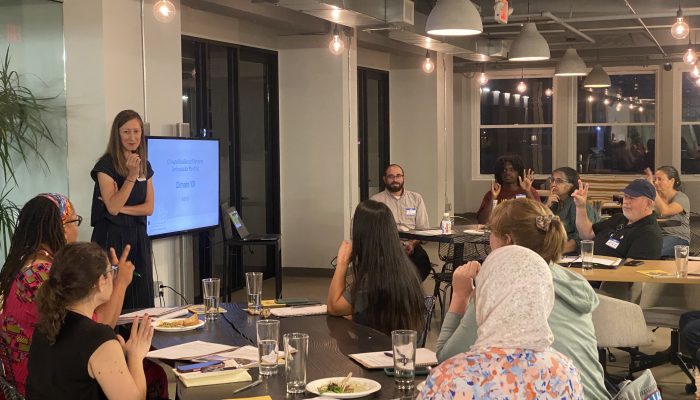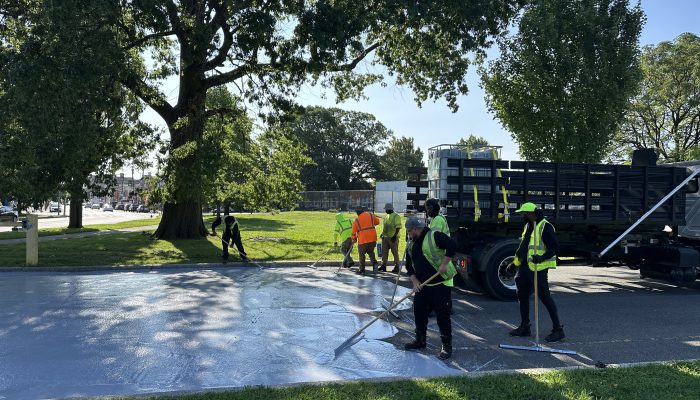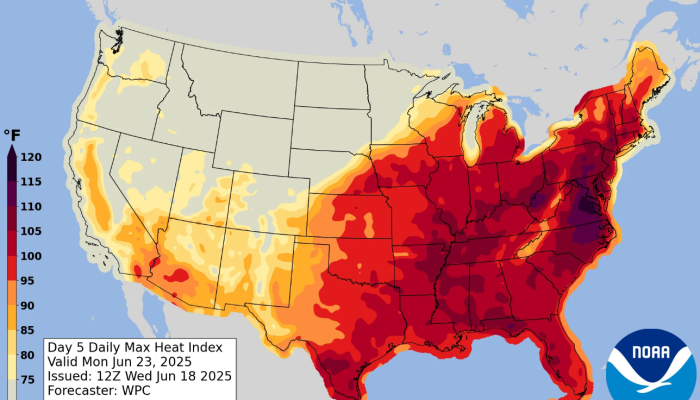Air temperature and surface temperature are not the same. For example, on a hot sunny afternoon, the surface of a car gets hotter than the air around it. How hot an object or surface gets depends on how exposed it is to the sun, what color it is, and what it is made of. This means that dense parts of the city – specifically areas with lots of dark-colored roads, parking lots, and buildings, as well as fewer trees and plants – not only get hotter, but also retain heat longer than surrounding areas. This is called the urban heat island effect. We experience this on a hot day in Philadelphia, where some parts of the city are nearly 30°F warmer than others! Extreme heat can significantly impact public health, and urban heat islands make some communities more vulnerable than others.
This summer, the Office of Sustainability (OOS) and the Department of Streets (Streets) are teaming up for a pilot project around the Hunting Park Recreation Center to address the urban heat island effect within one of the warmest neighborhoods in Philadelphia. Through a partnership with CoolSeal by GuardTop, OOS and Streets are testing innovative roadway materials from CoolSeal on a section of the park’s roadways. The new material is a light-colored sealant for asphalt that absorbs less heat by reflecting more sunlight than traditional black-coated asphalt. By changing the color and composition of pavement surfaces to lighter shades and materials with greater reflectivity, the City can potentially decrease temperatures both outdoors and indoors and help reduce urban heat islands.
During the summer of 2024, the City will apply CoolSeal material on a 32-by-900-foot section of path pavement in the park. The City will monitor the section year-round to assess the potential cooling benefits of the sealant and see how the material holds up in Philadelphia’s climate and environmental conditions.
Adopting cooler surfaces can lower air temperatures to create more tolerable walking and cycling conditions, as well as lower the burden on cooling systems, saving residents energy and money. Installing cool surface streets can make urban environments safer, healthier, and more comfortable for all Philadelphians.




